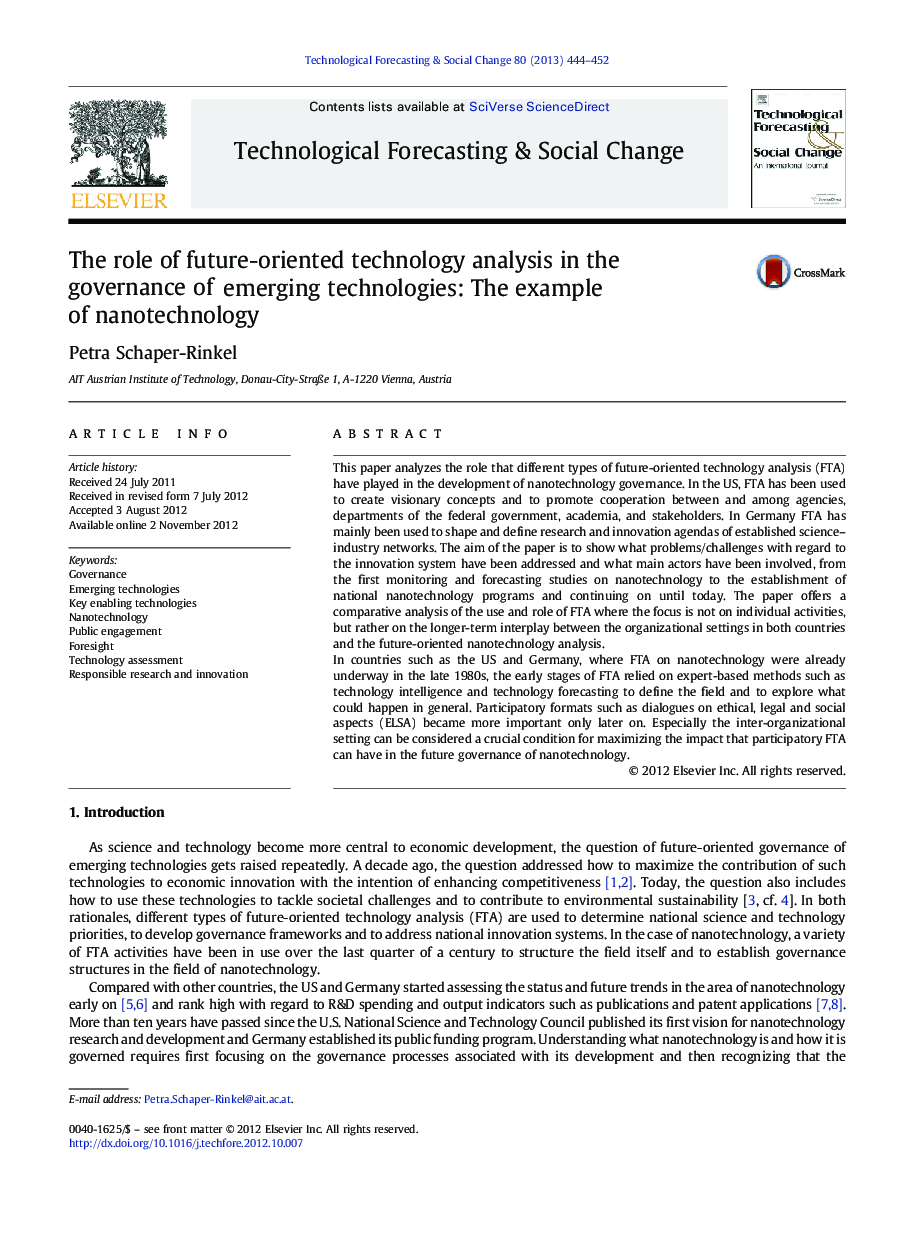| کد مقاله | کد نشریه | سال انتشار | مقاله انگلیسی | نسخه تمام متن |
|---|---|---|---|---|
| 896637 | 914849 | 2013 | 9 صفحه PDF | دانلود رایگان |

This paper analyzes the role that different types of future-oriented technology analysis (FTA) have played in the development of nanotechnology governance. In the US, FTA has been used to create visionary concepts and to promote cooperation between and among agencies, departments of the federal government, academia, and stakeholders. In Germany FTA has mainly been used to shape and define research and innovation agendas of established science–industry networks. The aim of the paper is to show what problems/challenges with regard to the innovation system have been addressed and what main actors have been involved, from the first monitoring and forecasting studies on nanotechnology to the establishment of national nanotechnology programs and continuing on until today. The paper offers a comparative analysis of the use and role of FTA where the focus is not on individual activities, but rather on the longer-term interplay between the organizational settings in both countries and the future-oriented nanotechnology analysis.In countries such as the US and Germany, where FTA on nanotechnology were already underway in the late 1980s, the early stages of FTA relied on expert-based methods such as technology intelligence and technology forecasting to define the field and to explore what could happen in general. Participatory formats such as dialogues on ethical, legal and social aspects (ELSA) became more important only later on. Especially the inter-organizational setting can be considered a crucial condition for maximizing the impact that participatory FTA can have in the future governance of nanotechnology.
► The inter-organizational setting is crucial for the impact of FTA in governance.
► In Germany FTA has been used to shape agendas of science-industry networks.
► In the US, FTA has been used to promote cooperation between stakeholders.
► The US nanotechnology policy has established broad networks with a focal organization.
► The German nanotechnology policy is less coordinated.
Journal: Technological Forecasting and Social Change - Volume 80, Issue 3, March 2013, Pages 444–452